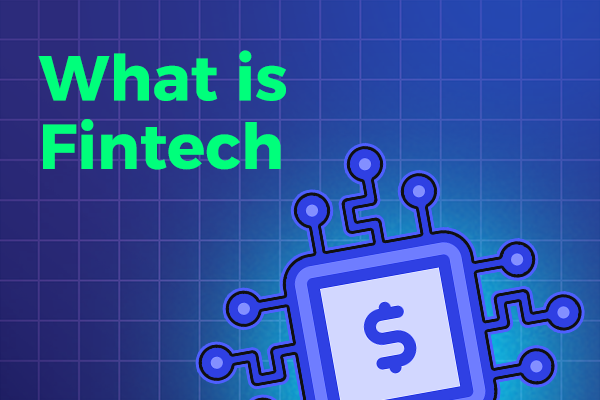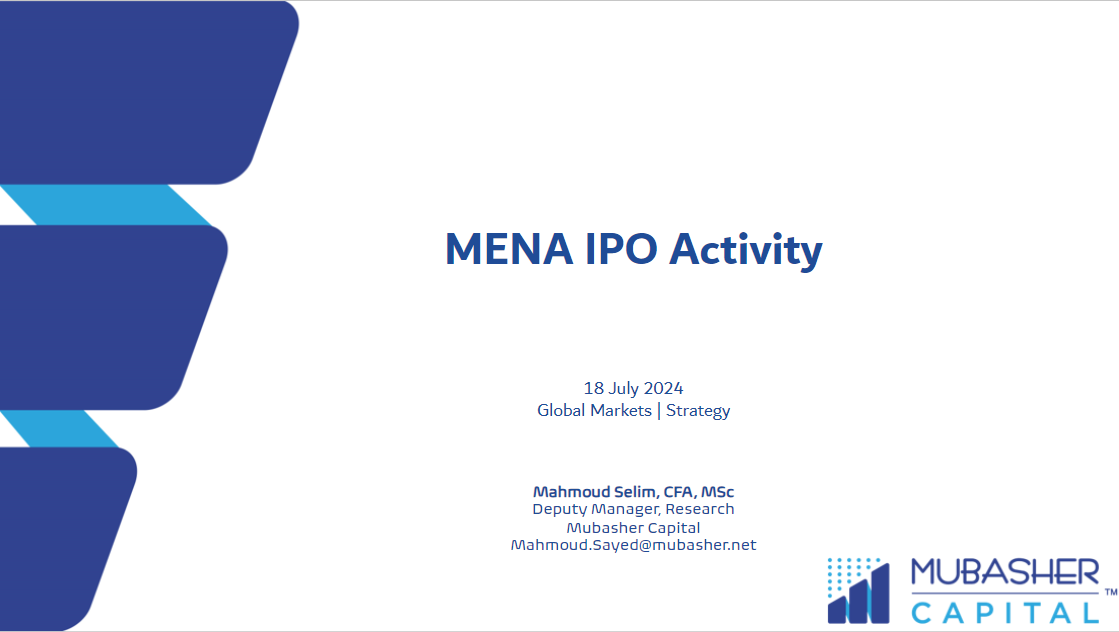1. Hey there, what’s this “Fintech Trading” all about?
If you’re not familiar with the term “fintech trading,” don’t worry, you’re not alone. Fintech is a buzzword that’s been thrown around a lot lately, and it’s causing a lot of confusion. So what exactly does it mean?
In simple terms, fintech trading refers to the use of technology to facilitate and improve financial services and transactions. It encompasses everything from online banking and payment apps to robo-advisors and cryptocurrency trading platforms.
If you’re curious to learn more about this exciting and rapidly growing field, then keep reading!
https://unsplash.com/@jonasleupe
2. So, why should you care about Fintech Trading?
Why Fintech Trading Matters
Fintech trading is a rapidly emerging field that has the potential to revolutionize the way we engage with financial services. Here are a few reasons why you should care about fintech trading:
1. Accessibility: Fintech trading platforms have made it easier than ever for individuals to access and engage in financial markets. In the past, trading stocks, commodities, or currencies required significant capital and specialized knowledge. Fintech trading platforms have democratized access to these markets, allowing anyone with an internet connection and a small amount of capital to participate.
2. Lower Costs: Traditional financial institutions often charge high fees for transactions, advisory services, and other financial products. Fintech trading platforms, on the other hand, typically offer lower fees and commissions, making it more affordable for individuals to invest and trade.
This can potentially lead to higher returns on investments and increased financial independence for individuals.
3. Innovation: Fintech trading is at the forefront of technological innovation. These platforms leverage cutting-edge technologies such as artificial intelligence, machine learning, and blockchain to create new and innovative financial products and services.
For example, robo-advisors use algorithms to provide personalized investment advice, while cryptocurrency trading platforms enable individuals to trade digital currencies with ease.
4. Convenience: Fintech trading platforms provide convenience and flexibility to users. With just a few clicks, individuals can access their trading accounts, monitor market trends, execute trades, and track their investments in real-time.
This means that individuals can engage in trading activities from anywhere, at any time, without the need for physical presence or reliance on traditional intermediaries.
5. Financial Inclusion: Fintech trading has the potential to promote financial inclusion by extending access to financial services to underserved populations. With traditional banking services often inaccessible or unaffordable for many individuals, fintech trading platforms offer an alternative means for individuals to save, invest, and grow their wealth.
This can help individuals in developing countries or those with limited financial resources gain economic empowerment and improve their financial well-being.
In conclusion, fintech trading is reshaping the financial services landscape by making it more accessible, affordable, innovative, and convenient.
Whether you are an experienced investor or someone just starting to explore the world of finance, fintech trading offers opportunities for individuals to take control of their financial future.
https://unsplash.com/@austindistel
3. Let’s break it down – what exactly is Fintech Trading?
Fintech trading, also known as financial technology trading, refers to the use of advanced technologies and digital platforms to facilitate financial transactions and investments. It combines the power of financial services with cutting-edge technology to provide individuals with easier, more affordable, and innovative ways to engage in trading and investing activities.
Fintech trading platforms leverage various technologies, such as artificial intelligence, machine learning, big data analytics, and blockchain, to create a seamless and efficient trading experience for users. These platforms offer a wide range of financial products and services, including but not limited to stock trading, forex trading, cryptocurrency trading, robo-advisory services, and peer-to-peer lending.
So, why should you care about Fintech Trading?
1. Accessibility: Fintech trading platforms have made it easier than ever for individuals to access and engage in financial markets. In the past, trading stocks, commodities, or currencies required significant capital and specialized knowledge. Fintech trading platforms have democratized access to these markets, allowing anyone with an internet connection and a small amount of capital to participate.
2. Lower Costs: Traditional financial institutions often charge high fees for transactions, advisory services, and other financial products. Fintech trading platforms, on the other hand, typically offer lower fees and commissions, making it more affordable for individuals to invest and trade. This can potentially lead to higher returns on investments and increased financial independence for individuals.
3. Innovation: Fintech trading is at the forefront of technological innovation. These platforms leverage cutting-edge technologies such as artificial intelligence, machine learning, and blockchain to create new and innovative financial products and services. For example, robo-advisors use algorithms to provide personalized investment advice, while cryptocurrency trading platforms enable individuals to trade digital currencies with ease.
4. Convenience: Fintech trading platforms provide convenience and flexibility to users. With just a few clicks, individuals can access their trading accounts, monitor market trends, execute trades, and track their investments in real-time. This means that individuals can engage in trading activities from anywhere, at any time, without the need for physical presence or reliance on traditional intermediaries.
5. Financial Inclusion: Fintech trading has the potential to promote financial inclusion by extending access to financial services to underserved populations. With traditional banking services often inaccessible or unaffordable for many individuals, fintech trading platforms offer an alternative means for individuals to save, invest, and grow their wealth. This can help individuals in developing countries or those with limited financial resources gain economic empowerment and improve their financial well-being.
In conclusion, fintech trading is reshaping the financial services landscape by making it more accessible, affordable, innovative, and convenient. Whether you are an experienced investor or someone just starting to explore the world of finance, fintech trading offers opportunities for individuals to take control of their financial future.
Unlock Wealth: Sign Up Now for Smart Investing Success
https://unsplash.com/@nate_dumlao
4. Getting started in Fintech Trading – what you need to know
Getting started in Fintech Trading – what you need to know
If you are interested in getting started with fintech trading, there are a few key things you need to know. Fintech trading platforms have made it easier than ever for individuals to access and participate in financial markets, but it’s important to have a clear understanding of the process before you dive in.
1. Research and education: Before you begin fintech trading, it’s crucial to educate yourself about the financial markets and the specific products or assets you are interested in trading. Take the time to learn about different trading strategies, risk management techniques, and market trends.
There are plenty of online resources, courses, and educational materials available to help you build your knowledge and skills.
2. Choose a reputable platform: With the growing number of fintech trading platforms available, it’s important to choose a platform that is reliable, secure, and regulated. Look for platforms that have a good reputation, strong customer support, and transparent fee structures. Take the time to read reviews and compare different platforms to ensure you select one that meets your needs.
3. Start with a demo account: Many fintech trading platforms offer demo accounts that allow you to practice trading with virtual money. This is a great way to familiarize yourself with the platform and test out different trading strategies without risking your real funds.
Take advantage of the demo account to gain practical experience and build confidence before transitioning to live trading.
4. Set clear goals and manage risk: Before you start trading, it’s important to set clear goals and define your risk tolerance. Determine how much capital you are willing to risk and establish a plan for managing your trades.
Implementing risk management techniques, such as setting stop-loss orders and using proper position sizing, can help protect your capital and minimize potential losses.
5. Stay updated and informed: The financial markets are constantly evolving, and it’s essential to stay updated on market news, economic events, and global trends that can impact your trading decisions. Utilize news outlets, market analysis tools, and social media platforms to stay informed about relevant information.
6. Start small and be patient: Fintech trading can be exciting, but it’s important to start small and gradually increase your trading size as you gain experience and confidence. Avoid the temptation to make impulsive or emotionally driven trades. Remember that trading is a marathon, not a sprint, and success comes with patience, discipline, and consistent effort.
7. Seek advice and learn from others: Joining online trading communities or forums can provide valuable insights and support from experienced traders. Networking with other traders can help you learn from their experiences, share trading ideas, and gain a better understanding of different market perspectives.
Remember, fintech trading carries risks, and it’s crucial to approach it with a realistic mindset. While the opportunities for financial independence and growth are significant, it’s important to be aware of the potential risks and ensure you are always trading within your means.
With the right mindset, knowledge, and preparation, you can embark on your fintech trading journey with confidence and increase your chances of success in the dynamic world of financial markets.
https://unsplash.com/@nate_dumlao
5. Are you ready to jump into Online Trading?
Now that you have familiarized yourself with the basics of fintech trading, it’s important to determine if you are ready to jump into this exciting world of financial markets.
Fintech trading offers individuals the opportunity to access and participate in various financial instruments, but it’s crucial to assess your readiness and ensure you have the necessary knowledge and skills to navigate this dynamic landscape.
1. Assess your financial readiness: Before diving into fintech trading, it’s important to assess your financial situation and determine if you have the necessary capital to invest. Fintech trading involves risks, and you should only invest funds that you can afford to lose. It’s crucial to have a clear understanding of your financial goals, risk tolerance, and available capital before starting your trading journey.
2. Evaluate your knowledge and skills: Fintech trading requires a solid foundation of knowledge and skills. Evaluate your understanding of financial markets, trading strategies, risk management techniques, and technical analysis. If you feel that you lack sufficient knowledge in any of these areas, it’s important to invest time in educating yourself. Take advantage of online resources, courses, and educational materials to enhance your knowledge and skills before starting real-time trading.
3. Develop a trading plan: A trading plan is a crucial component of successful any kind trading. It outlines your trading goals, risk management strategies, trading timeframes, and specific entry and exit criteria.
Developing a trading plan helps you stay disciplined, avoid impulsive decisions, and stick to your predetermined strategies. Take the time to create a well-thought-out trading plan that aligns with your financial goals and risk tolerance.
4. Choose the right trading platform: Selecting the right Online digital trading platform is vital for your success as a trader. Research different platforms, compare their features and functionalities, and read reviews from other users.
Look for platforms that are user-friendly, offer a wide range of financial instruments, have competitive fees, and provide reliable customer support. It’s also essential to ensure that the platform you choose is regulated and offers the necessary security measures to protect your funds and personal information.
5. Start with a demo account: Many fintech trading platforms offer demo accounts that allow you to practice trading with virtual money. Utilize this opportunity to familiarize yourself with the platform, test your trading strategies, and gain practical experience without risking real funds. Starting with a demo account allows you to build confidence and refine your trading approach before transitioning to live trading.
6. Embrace continuous learning and improvement: Digital Online trading is a continuous learning process. Stay updated on market news, economic events, and global trends that can impact your trading decisions. Utilize market analysis tools, news outlets, and social media platforms to stay informed and adapt your strategies accordingly. Additionally, seek advice and insights from experienced traders, join online trading communities or forums, and learn from their experiences.
7. Start small and manage risk: When you begin live trading, it’s crucial to start small and gradually increase your trading size as you gain experience and confidence. Implement effective risk management techniques, such as setting stop-loss orders and using appropriate position sizing, to protect your capital and minimize potential losses. Remember that trading involves risks, and it’s essential to approach it with a realistic mindset and always trade within your means.
Fintech trading offers exciting opportunities for financial independence and growth, but it requires careful preparation and continuous learning. Assess your readiness, educate yourself, develop a trading plan, choose the right platform, and start with a demo account to build confidence.
With the right mindset and skills, you can embark on your fintech trading journey with confidence and increase your chances of success in the ever-evolving world of financial markets.
https://unsplash.com/@claybanks
6. Wrapping it up – the future of online Trading
The future of fintech trading looks incredibly promising and is expected to continue evolving in the coming years. As technology advances and becomes more accessible, the fintech trading industry is likely to experience significant growth and transformation.
Here are a few key trends and developments that are shaping the future of online trading:
1. Increased accessibility: Fintech trading has already made financial markets more accessible to individuals around the world. With the rise of mobile trading apps and user-friendly platforms, anyone with a smartphone and an internet connection can now participate in financial markets. This trend is expected to continue, with fintech companies focusing on further simplifying the trading process and making it more inclusive.
2. Automation and artificial intelligence: Automation and artificial intelligence (AI) are revolutionizing the way trades are executed and analyzed. Fintech trading platforms are leveraging AI algorithms to automate trading processes, from trade execution to risk management.
These algorithms can analyze large amounts of data in real-time, identify patterns, and make informed trading decisions. As AI technology advances, it is expected to play an even larger role in the future of fintech trading.
3. Integration of blockchain technology: Blockchain technology has the potential to disrupt the financial industry by providing secure and transparent transactions. Fintech trading platforms are exploring the integration of blockchain technology to enhance security, streamline transactions, and reduce costs.
Blockchain-based solutions can enable faster and more efficient settlement processes, eliminate intermediaries, and provide greater transparency in trading.
4. Expansion into new asset classes: Fintech trading is no longer limited to traditional financial instruments like stocks and currencies. Fintech platforms are expanding their offerings to include alternative investments such as cryptocurrencies, commodities, and even fractional ownership of real estate. This expansion into new asset classes allows individuals to diversify their investment portfolios and explore new opportunities.
5. Enhanced user experience: Fintech companies are constantly seeking ways to improve user experience and make trading more intuitive and enjoyable. User-friendly interfaces, personalized dashboards, and sophisticated charting tools are just a few examples of how fintech platforms are enhancing the user experience.
In the future, we can expect to see further advancements in technology that will make trading more accessible and engaging for users.
6. Regulatory advancements: As fintech trading continues to gain popularity, regulators around the world are adapting to this new era of finance. Regulatory frameworks are being developed to ensure investor protection, prevent market manipulation, and promote fair trading practices. As fintech trading becomes more mainstream, it is crucial for regulators to strike a balance between innovation and investor safety.
In conclusion, the future of Online trading holds immense potential. With increased accessibility, advancements in technology, and regulatory support, Online trading is set to revolutionize the way individuals participate in financial markets.
As an investor, it is essential to stay informed about the latest trends and developments in order to take full advantage of the opportunities that Digital online trading presents.
https://unsplash.com/@blakewisz
7. Now go out there and conquer the world of Fintech Trading!
Now that you have a deeper understanding of what fintech trading is and the future trends shaping this industry, it’s time to take action and make the most of the opportunities available to you. Here are some key steps to help you conquer the world of fintech trading:
1. Educate yourself: Fintech trading is a complex field, and it’s important to have a solid understanding of the fundamentals before you start trading. Take the time to educate yourself about different investment strategies, risk management techniques, and the specific features and benefits of the fintech trading platforms you plan to use. This will help you make informed decisions and minimize potential risks.
2. Start small: If you’re new to fintech trading, it’s advisable to start with a small investment and gradually increase as you gain more experience and confidence. This approach will allow you to learn from any mistakes or losses along the way without putting your entire capital at risk. Remember, patience and discipline are key in the world of trading.
3. Use demo accounts: Many fintech trading platforms offer demo accounts that allow you to practice trading in a simulated environment using virtual money. Take advantage of these accounts to familiarize yourself with the platform’s features, test different strategies, and gain practical experience without risking real funds. It’s a valuable learning tool for both beginners and experienced traders.
4. Stay informed: The fintech trading landscape is constantly evolving, and staying up to date with the latest news, market trends, and regulatory developments is crucial. Follow reputable financial news sources, join relevant online communities or forums, and consider subscribing to newsletters or blogs that provide valuable insights and analysis. This knowledge will help you make informed trading decisions and adapt to changing market conditions.
5. Develop a trading plan: A well-defined trading plan is essential to guide your investment decisions and help you stay focused and disciplined. Your trading plan should include your investment goals, risk tolerance, preferred trading strategies, and a clear set of rules for entering and exiting trades. Stick to your plan and avoid making impulsive decisions based on emotions or short-term market fluctuations.
6. Practice risk management: Online trading involves inherent risks, and implementing effective risk management techniques is crucial to protect your capital. Set appropriate stop-loss orders, diversify your investments across different asset classes, and never invest more than you can afford to lose. Keep in mind that losses are a part of trading, and managing risk is essential for long-term success.
7. Learn from your experiences: Keep a trading journal to document your trades, including the rationale behind each decision and the outcome. Regularly review your journal to identify patterns, strengths, and weaknesses in your trading approach.
Learning from your experiences, both successes and failures, will help you continuously improve your skills and refine your trading strategies.
Remember, success in fintech trading requires continuous learning, adaptation to market changes, and a disciplined approach. By following these steps and maintaining a growth mindset, you can confidently navigate the world of Online trading and strive towards achieving your financial goals. So go out there, seize the opportunities, and make your mark in the exciting world of fintech trading!




